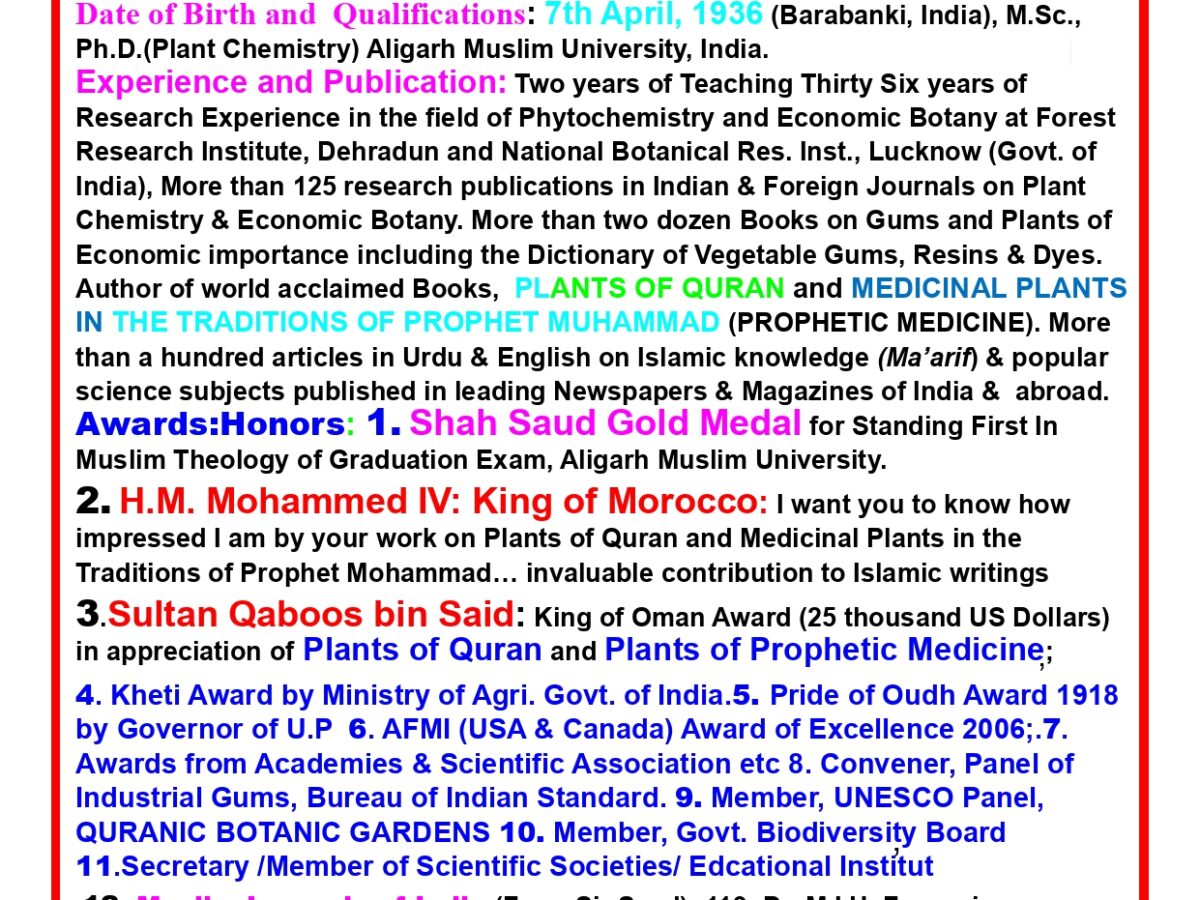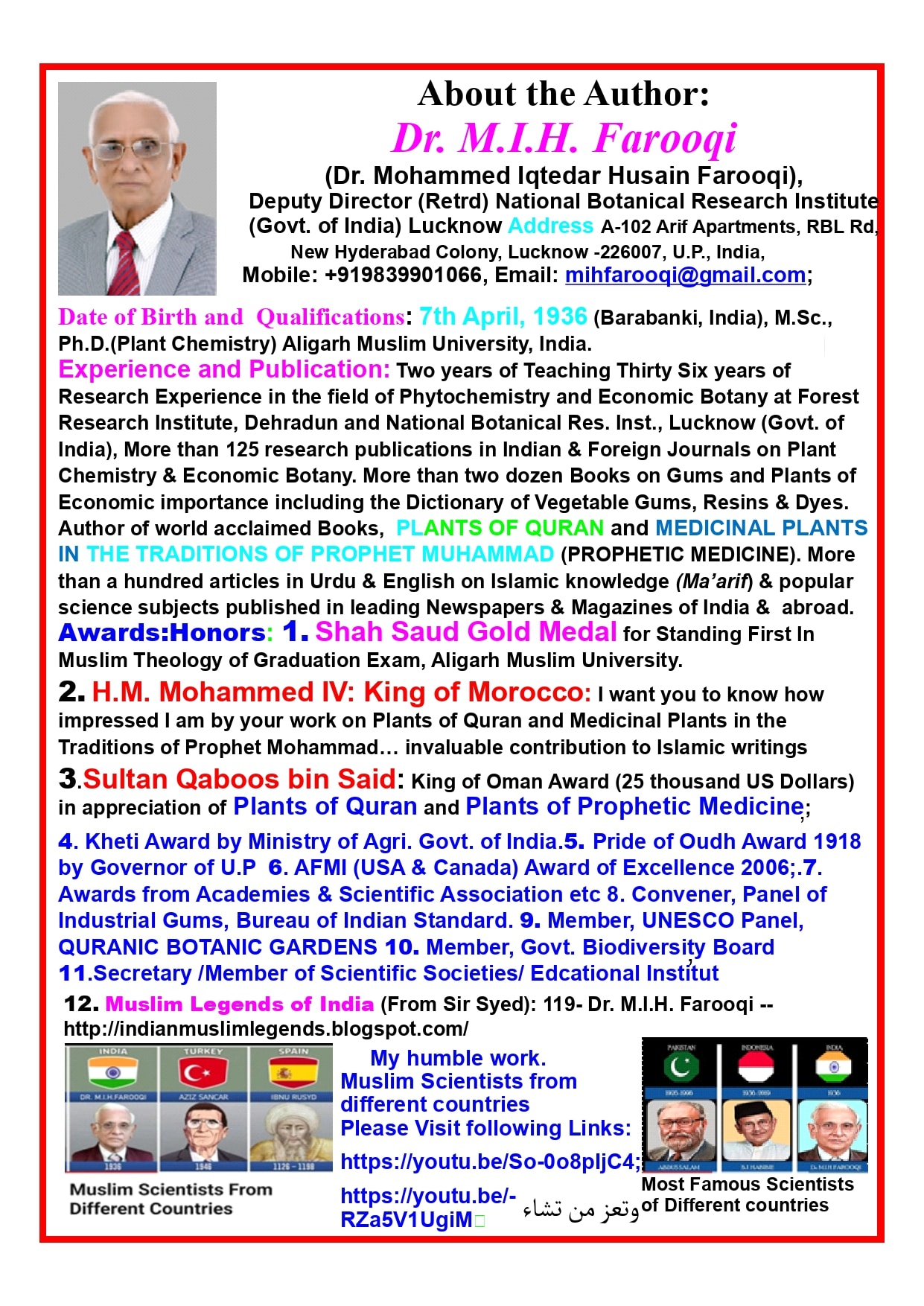Eid-e-Milad un-Nabi: “Oh My Lord, Increase Me in Knowledge”: Dr MIH Farooqi
Muslims throughout India celebrate Prophet Muhammad's Birthday, popularly known as Eid-e-Milad un-Nabi, every year on the 12th day of the month of Rabiul Awwal

Muslims throughout India celebrate Prophet Muhammad’s Birthday, popularly known as Eid-e-Milad un-Nabi, every year on the 12th day of the month of Rabiul Awwal (the 3rd month of the year according to the Islamic lunar calendar). This date changes annually in the Gregorian calendar (based on the solar year). In 2024, the Prophet’s Birthday falls on September 15th.
Eid-e-Milad un-Nabi is distinct from Eid al-Fitr and Eid al-Adha. Eid al-Fitr celebrates the end of fasting during the entire month of Ramazan, while Eid al-Adha is celebrated to honor the willingness of Hazrat Ibrahim to sacrifice his son Hazrat Ismael as an act of obedience to God’s command.
On Eid-e-Milad un-Nabi, large gatherings are organized where the Sirah (the life of the Prophet) is revisited, and Islamic scholars remind the Ummah (community) about the teachings of the Prophet for their benefit in this world and the hereafter. These gatherings, known as Milad or Mahfil-e-Milad, continue in smaller groups throughout the month of Rabiul Awwal.
Given that Muslims are currently lagging behind in education (knowledge), a major cause of their sufferings, many Muslim scholars exhort Muslims to acquire knowledge as directed by the Prophet. Knowledge (Arabic – Ilm, singular; Uloom – plural) and intellectual weakness are the primary reasons for the decline of Muslims, and thus, the acquisition of knowledge is seen as the solution to the existing problems of Indian Muslims.
There are numerous Prophetic traditions (sayings) that encourage Muslims to acquire all types of knowledge from any part of the world. The Hadith literature (sayings of the Prophet) is filled with references to the value of knowledge. Some of these sayings of the Prophet are as follows:
- “Seeking knowledge is obligatory for every Muslim (men or women).”
- “A knowledgeable man is more formidable against Satan.”
- “Seek knowledge even if it is as far as China.”
- “If anyone travels in search of knowledge, Allah will cause him to travel on one of the roads of Paradise. The angels will lower their wings in their great pleasure with one who seeks knowledge.”
- “Whoever takes a path upon which to obtain knowledge, Allah makes the path to Paradise easy for him.”
- “O Allah, I ask Thee for beneficial knowledge, acceptable action, and good provision.”
- “Wisdom is the lost property of a Muslim; hence collect it from whoever you find it with.”
- “Knowledge from which no benefit is derived is like a treasure out of which nothing is spent in the cause of God.”
- “Acquire knowledge and impart it to the people.”
- “The best thing that a man can leave behind is knowledge which is acted upon after his death.”
- “Who goes seeking knowledge, then he is in Allah’s cause until he returns.”
- “When a person dies, his deeds are cut off except for three: continuing charity (Urdu – Sadaqa), knowledge that others benefited from (Urdu – Ilm Nafe), and a righteous son who supplicates for him.”
- “The best of charity is when a Muslim man gains knowledge and then teaches it to his brothers (others).”
These Prophetic sayings (traditions) echoed throughout the history of Islam and encouraged Muslims to seek knowledge. For a believer, life should be a “learning journey from cradle to grave.” Muslims prospered for almost ten centuries because they followed these injunctions. Their decline began when they regarded religious knowledge as their only obligation and then abandoned the path of modernization. Maulana Abul Hasan Ali Nadvi, a well-known Islamic scholar of the twentieth century, observed in his book on the conflict between Islam and the West: “Humanity greatly suffered because of severing the ties of knowledge (science) with religion, and this separation has caused great harm to Islamic society.”
While justifying the need for acquiring modern knowledge, Maulana Akhlaq Hussain Qasmi states, “The concept that Islam is only a religion of beliefs and worship, and that the knowledge of this field is the only knowledge Muslims have been asked to learn, is very flawed.”
The world is rapidly changing. In fact, it has already changed forever. Muslims must work hard to meet the requirements of the new world. Not allowing people to adapt to the new world order and keeping away from Western sciences is detrimental to any nation or group of people. This is what Sir Syed emphasized throughout his life, known as the Aligarh Movement.
Unfortunately, Muslims consider their plight as Divine Will, which is an un-Islamic attitude. The Quran states: “Allah will not change the condition of a people until they change what is in themselves” (Surah Raad; Verse 11).
The best way to celebrate the Prophet’s Birthday (Milad un-Nabi) is to appeal to Muslims to acquire knowledge with great urgency to resolve their problems. Eid Milad un-Nabi (Prophet’s Birthday) is an ideal occasion for Muslims to say to Allah: “Oh My Lord! Increase me in knowledge.” (Qur’an, Surah 20, Verse 115)

